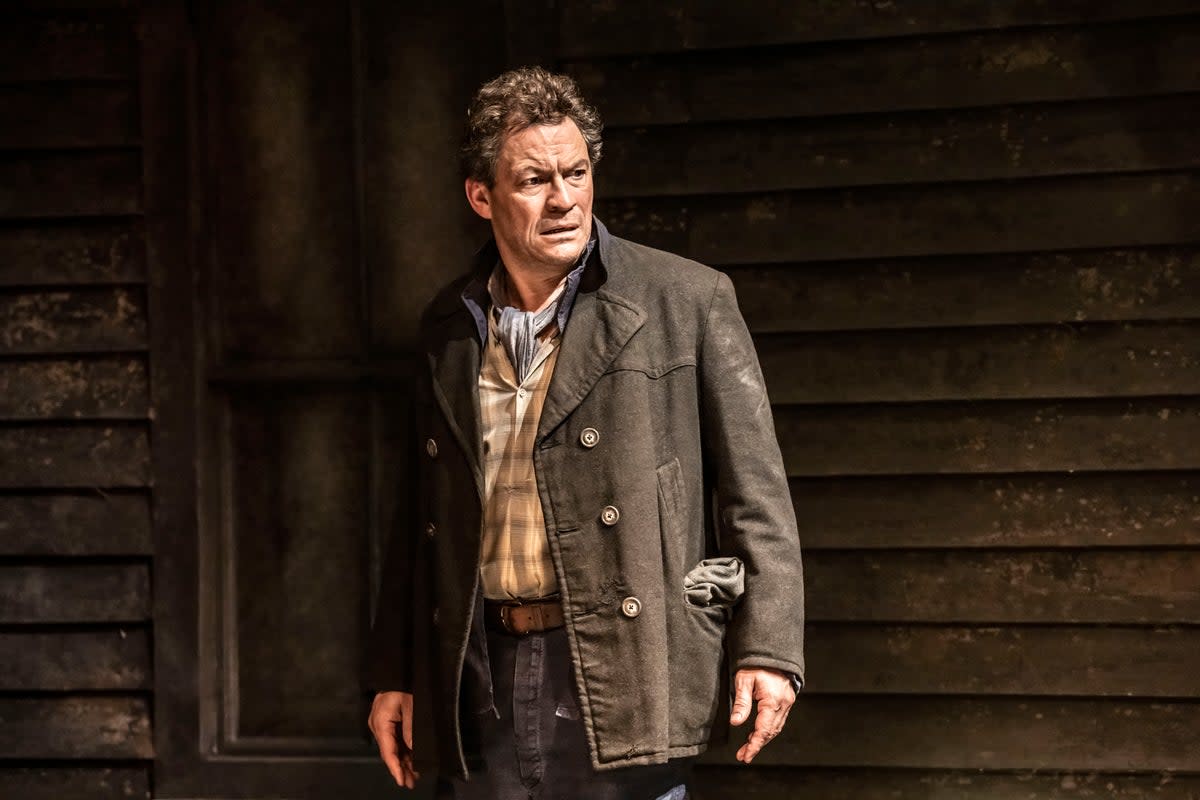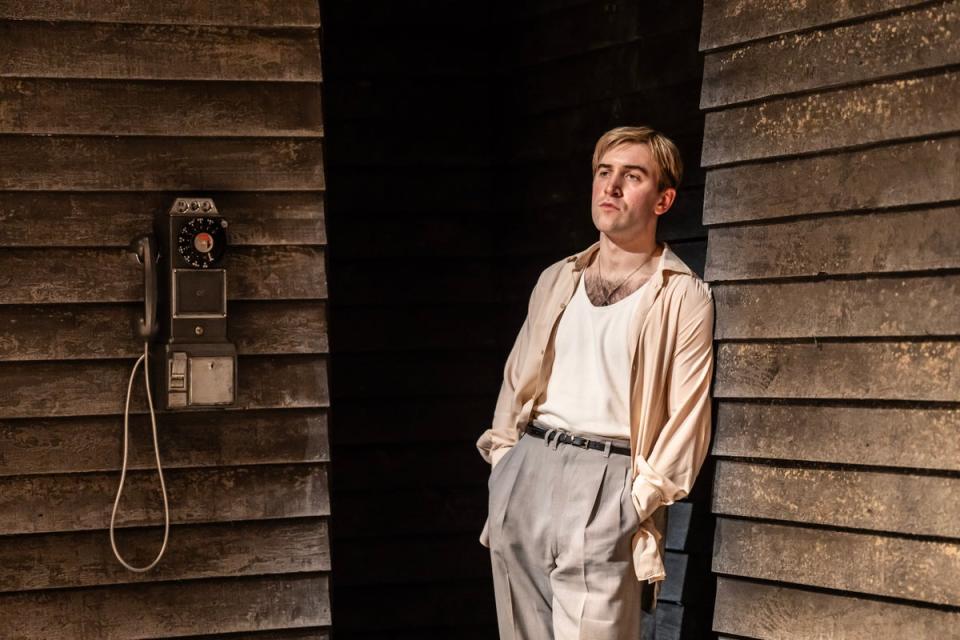A View from the Bridge review: Dominic West gently reinvents Arthur Miller’s tragic hero

Belgian director Ivo van Hove’s production of A View From the Bridge at the Young Vic back in 2014 remains a high watermark of contemporary theatre. Showers of blood-red rain, no set or props, Mark Strong and Nicola Walker going at it with a brutal level of intensity that didn’t let up until the final, tragic scenes. That was the last big production of Arthur Miller’s classic in London, and it did beg the question at the time: how on earth can anyone do this play justice again?
Lindsay Posner’s answer is this: go back to basics. Don’t try anything flashy. Let a few good actors deliver a really good script. His production – which ran in Bath earlier this year – is resolutely un-radical and sometimes threatens to be uninteresting. There’s a pretty nice set by Peter McKintosh, towering tenement walls looking like they might close in at any second, some skeletal chairs. A bit of mournful trumpet music between scenes. It’s really quite straightforward, and it could have sat on a stage at any point in the last 68 years.
But it really works.
The skill of his directing isn’t in the staging – far from it – but in putting all the focus on the emotional journey of Eddie Carbone as a nice guy discovering complicated feelings. It opens on a scene of domestic bliss as longshoreman Eddie, played by Dominic West, chats to his wife, Beatrice, and niece, Catherine, about her new job. This could be The Waltons. West’s Carbone is a guy to root for, loveable and content, all smiles and open gestures.
Then Beatrice’s Italian cousins, Marco and Rodolpho, rock up to stay with the Carbones. They’ve arrived in the country illegally in order to make a bit of money they can send home, and the slightly weird, slightly outré Rodolpho (“he sings, he cooks, he makes dresses!” Eddie exclaims) starts seducing Catherine, which is a problem – because Eddie is in love with her.
But even then, Posner keeps things light. Callum Scott Howells as Rodolpho really leans into the comedy: Howells gives him a funny laugh, he stretches out syllables in his thick Italian accent. Slowly, slowly, we watch the contentedness drain out of West’s Eddie. As he starts to get riled by Rodolpho’s relationship with Catherine, we can see him having to wrestle with complex emotions for the first time. There’s confusion and anguish and fear in West’s face. A dark cloud seems to gather over him through the course of the play.
Then, finally, towards the end, the comedy evaporates, thanks to Pierro Niel-Mee’s Marco, who quietly becomes one of the best things about the show. Where Howells does everything big, Niel-Mee keeps it tight and quiet, so that when he screams his denouncement of Eddie at the end it’s supremely chilling.
At 54, West is an older Eddie than usual – but it’s something West really uses in his performance. He’s stiff and a bit stooped as he walks, and the scenes where he tries to show off his physical prowess – teaching Rodolpho how to box, or being challenged by Marco to lift a chair with a hand behind his back – come across as sad and pathetic. We know he doesn’t have it in him.

And when Kate Fleetwood’s Beatrice desperately confronts him about how they haven’t slept together for so long, you can see him age even more. Fleetwood is a brilliantly taut Beatrice, her whole body tense, as though she’s been pushing all her pain and worries deep down for years and is about to snap.
It’s not a perfect piece, and at times it risks ossifying into a creaky relic from the past. But West stops that from happening. He gently, playfully reinvents Carbone, yes, but there’s no big message here. And by not imposing anything on the play, Posner lets contemporary resonances – the precariousness of being a migrant – speak for themselves. Most of all, though, he gives us something simple, and surprisingly rare: a really decent production of a really great play.
Theatre Royal Haymarket, until 3 August


